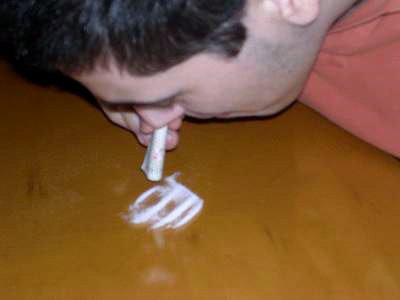Of the 68 automatic-qualifying Bowl Championship Series conference schools (including soon-to-be BCS programs TCU and Utah), only four do not require a member of its football team to miss any playing time after two positive drug tests. They are Clemson, Ole Miss, Purdue and UCLA.
That's just one of the findings from an investigative study by sports website FanHouse, which also revealed that six universities - Baylor, Cincinnati, Georgia, Kentucky, Miami and Virginia Tech - have much stricter policies that call for the suspension of a player for at least one game after one positive drug test.
The FanHouse study focused on illegal use of street drugs such as marijuana, cocaine and heroin. As a FanHouse report on the study notes, the NCAA conducts tests for performance-enhancing drugs, and those penalties are the same for every NCAA member institution: A first positive test for steroids results in a one-year suspension, while a second positive test ends a student-athlete's NCAA eligibility for the remainder of his or her career. When it comes to recreational drugs, nearly all BCS programs recommend or require first-time offenders to participate in counseling. But there also exist striking disparities in philosophies on the severity of handling multiple-time drug offenders. "Recreational (drug use) doesn't get into the competition, the competitive piece," Big 12 commissioner Dan Beebe told FanHouse. "I think that it's better as an institutional decision within each school's own policy."
 cocaine.jpg
cocaine.jpg
FanHouse obtained the substance-abuse policies of 60 of the 68 universities through public-records requests or from the school's official websites. According to the site's report, penned by senior NCAA writer Brett McMurphy:
⢠At Purdue and UCLA, a student-athlete does not miss any games after two positive tests and only misses one game for a third positive test. By comparison, a student-athlete at 31 of the 60 schools is dismissed from the football program for a third positive test. Purdue also offers this caveat: if a student-athlete goes 18 months since his last positive test, he may revert back to his previous number of positive tests - in essence earning up to five chances before dismissal.
⢠At Clemson, no games are missed for two positive tests. The main punishment is the student-athlete must perform a minimum of 30 hours community service.
⢠At Ole Miss, a student-athlete with a second positive drug test also doesn't miss any playing time, but loses "certain privileges such as complimentary player or family game tickets." A third positive test results in a three-game suspension.
Eight programs - Florida State, Louisville, Nebraska, Oregon, Oregon State, Texas, Texas A&M and Virginia - did not specify how many games, if any, a student-athlete misses for a second-positive test, the study indicated. Some of those schools leave the decision up to the head coach and/or athletic director. And at Florida, Illinois, Purdue and UCLA, student-athletes may have up to five positive drug tests before being dismissed. Those are easily the nation's most lenient policies, according to McMurphy.
Some schools' substance abuse policies also consider a drug-related or DUI arrest or conviction as a positive test, while others levy suspensions for alcohol abuse and/or tobacco use.
For a complete report, click here.




































